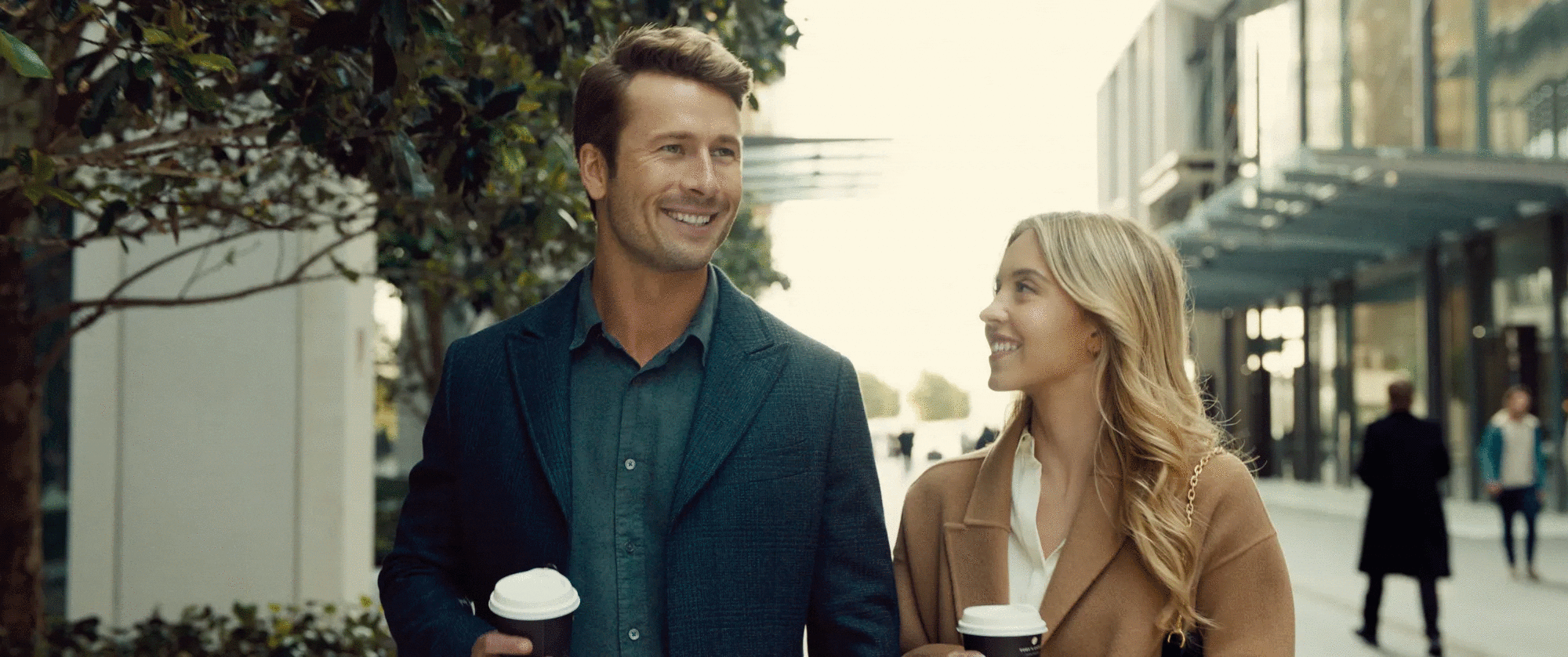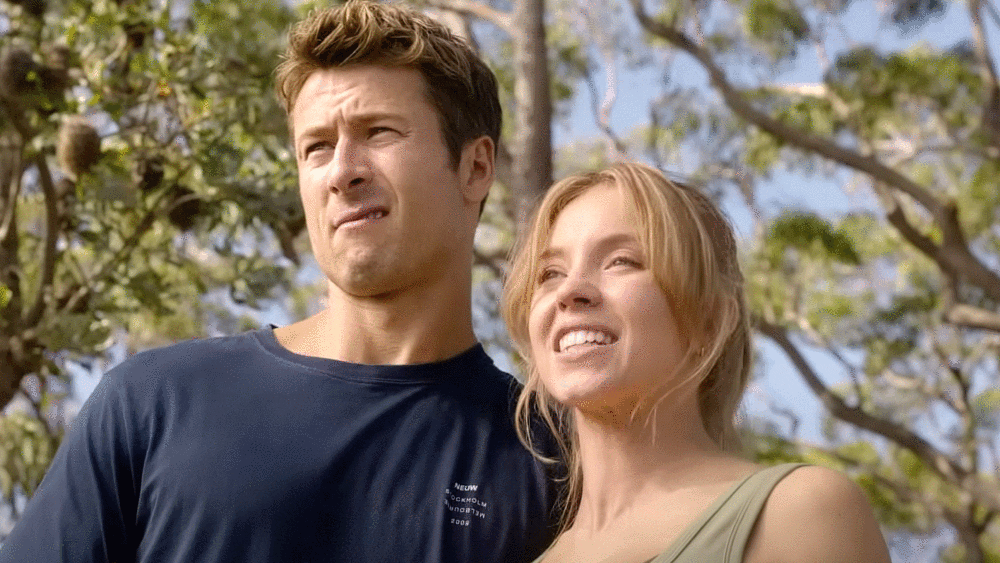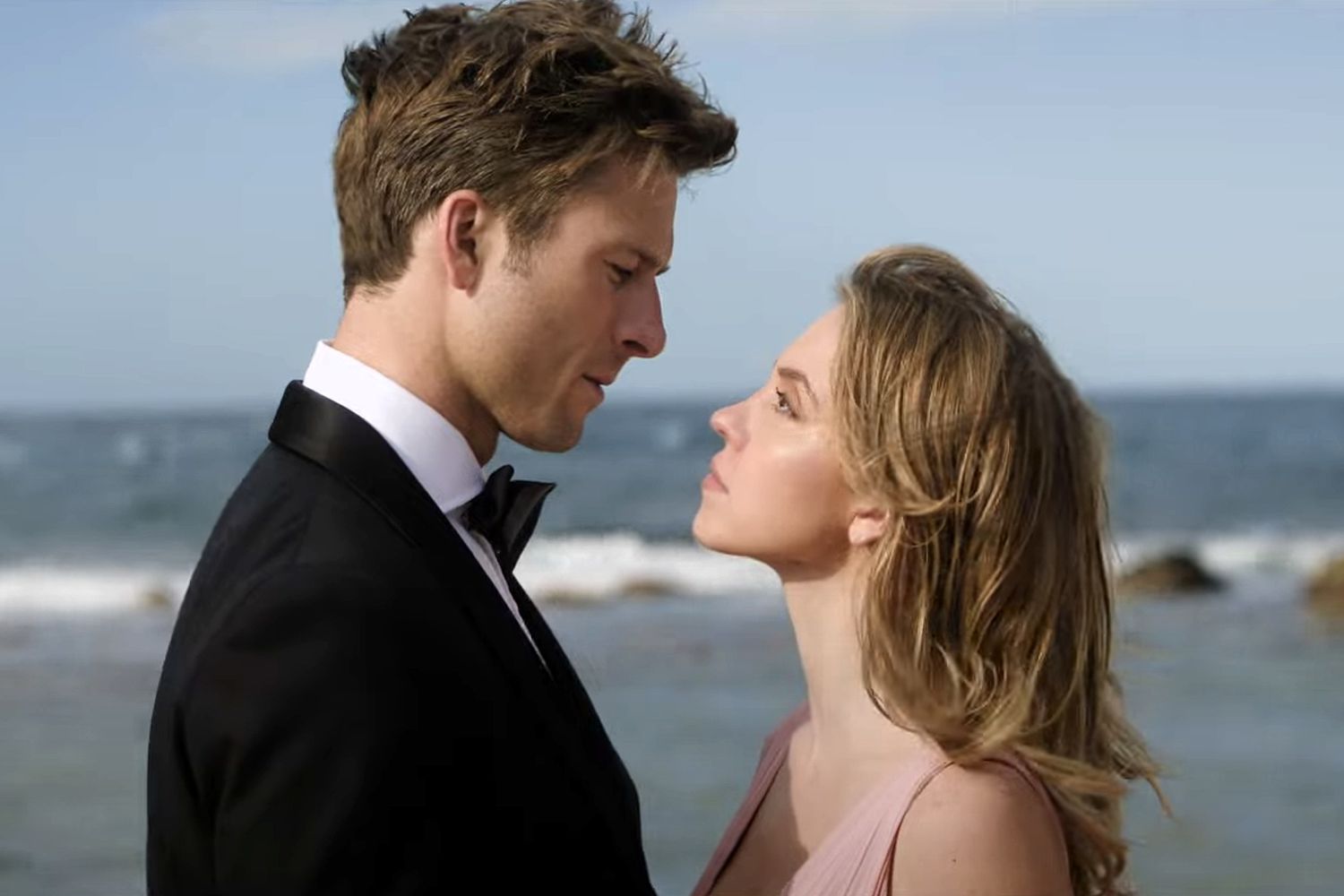REVIEW: Anyone But You (2023)
Generally speaking, I don’t like romance movies. Sometimes, one surprises me, but I find romance much more appealing as a subplot in fantasy or adventure films. When I first saw the trailer for Anyone But You, I wasn’t impressed. Sydney Sweeney is incredible in Euphoria, but this movie looked dumb, vapid, and exactly like every other romantic comedy on the market. Then I heard that Anyone But You was an adaptation of Much Ado About Nothing, and my theater was offering bonus points in their app for seeing it. That’s what it took for me to see this movie. Let’s find out if Anyone But You is a pleasant surprise or just another silly love story.
Anyone But You stars Bea (Sweeney) and Ben (Glen Powell), young adults who meet by chance in a coffee shop. They share a wonderful afternoon and night, but Bea scurries away first thing in the morning. Months later, they’re forced together for Bea’s sister Halle’s (Hadley Robinson) wedding to Ben’s friend Claudia (Alexandra Shipp). The happy couple and other members of the wedding party conspire to pair Bea and Ben up, but Bea’s parents have other plans for her. Will true love prevail, or will Bea return to her ex? Is water wet?

Sydney Sweeney is good in this, and Glen Powell is charming enough, but they don’t have amazing chemistry, which I find to be a deal breaker for this type of film. If you can’t get the audience invested in the central relationship and make us care about the leads, it just doesn’t work. I suppose the creatives and executives behind Anyone But You thought the attractiveness of the two lead actors would be enough to cover for paper-thin characters and a lame script, but it’s not. Dermot Mulroney and Rachel Griffiths play Bea’s mom and dad, Leo and Innie, and they’re just the worst. It’s not any fault of the performers; I’m sure they were instructed to be insufferable. There are a lot of things I hate about Anyone But You, but Bea’s parents are high on the list. Leo has a couple of lines that are intended to be funny and charming, but these attempts are overwhelmed by his and Innie’s scheming. They’re judgemental towards Bea and berate her for letting her younger sister get married first. They criticize every decision she makes, be it educational, professional, or romantic. I don’t like to use the word “triggered,” especially as it’s so overused now, and I don’t want to downplay PTSD or any of the very real problems people have with triggers. But I felt triggered by Bea’s parents and how they act. They’re all in her business the entire movie, even sneaking her ex to the wedding without warning anyone. They yell at her for lying to them, and she apologizes! Again, I detested a lot about this film, but I wanted to scream at this part. Why do they deserve an apology? It’s none of their business where Bea is at in life unless she wants to tell them. They should apologize for behaving horribly and refusing to respect their adult daughter’s boundaries. I find it harmful in movies when blame is improperly placed or the wrong party is expected to apologize. They could have simply had everyone apologize, which would be a fair and realistic outcome. Family arguments are usually a little more complicated than “I’m right, and you’re wrong, so you have to say sorry.”

I really like Alexandra Shipp in general, and she does what she can here. She’s just a supporting character (despite being the bride), but I think they could have given her more to do. I recently saw Hadley Robinson in The Boys in the Boat, and I’ve never seen her in anything else. Much like the leads, I don’t think these two have much chemistry. For a love story, Anyone But You doesn’t make me feel the love at all. None of the couples in the film are very affectionate except for Claudia’s parents, and they’re peripheral players. None of the acting in the movie is particularly bad, but nobody is outstanding, either. In every facet of production, from the performances to the script, Anyone But You lacks a certain creative flair. Who wanted to make this movie? Who felt passion for this story and yearned to tell it? There’s nothing special or memorable in this movie.

The original music in Anyone But You is by Este Haim and Christopher Stracey. It’s bland and safe, like the rest of the film, which is better than the existing songs included. Anyone But You is obsessed with “Unwritten” by Natasha Beddingfield, and if anything, this is what you’ll remember from the film. I didn’t hate this song or feel strongly about it at all before I saw the movie, but I think I may hate it now. They could have made this a one-off joke and moved on, but the writers seem to think repeating it makes it funnier. It does not. This movie has an honest-to-God musical sequence at the end, with all the characters singing “Unwritten” together. Whose idea was this? This is not a musical, by the way; this is the only song performed by the characters, and it’s played as a (terrible, unfunny) joke.

The dialogue in Anyone But You leaves much to be desired. The attempts to build a relationship between Bea and Ben, or anyone for that matter, fall flat. The movie fails at both telling and showing us about the characters. Most characters in this film have one trait, and that’s all they get, and it doesn’t change throughout the film. The only change the heroes undergo is getting into a relationship. Bea is unsettled in life, Claudia is sassy but sincere, etc. The writers don’t seem very invested in their characters and don’t seem to care about getting us to care about them.

Anyone But You is bad. The acting is serviceable, but you won’t remember any of the performances once the film ends. The music and visuals are fine, about what you’d expect for a rom-com. Any memorable dialogue is from the Shakespeare play, as Anyone But You is bound and determined not to do anything unique or interesting. I wouldn’t recommend this film to anyone. I can’t imagine why Sydney Sweeney executive produced this film, as I don’t see it being the project to push her into the mainstream.
Anyone But You (2023)
Plot - 2
Acting - 6
Directing/Editing - 5
Music/Sound - 5
Comedy - 2
4
Awful
Anyone But You is bad, a lazy, unfunny romantic comedy with no laughs and no chemistry between the leads, or anyone else for that matter.
Comments (1)









I’m starting to think I shouldn’t trust Chris Gore’s takes when it comes to comedy films.